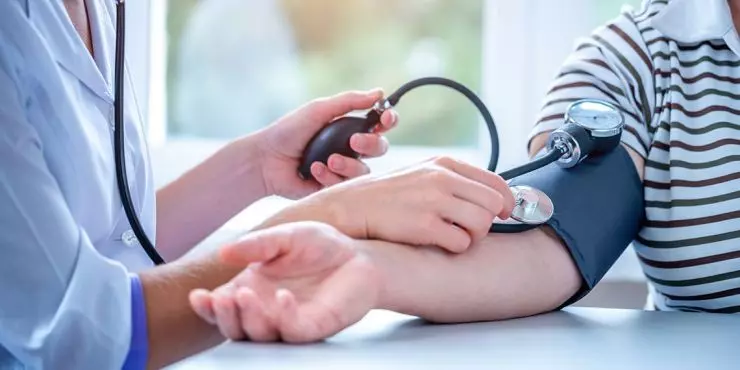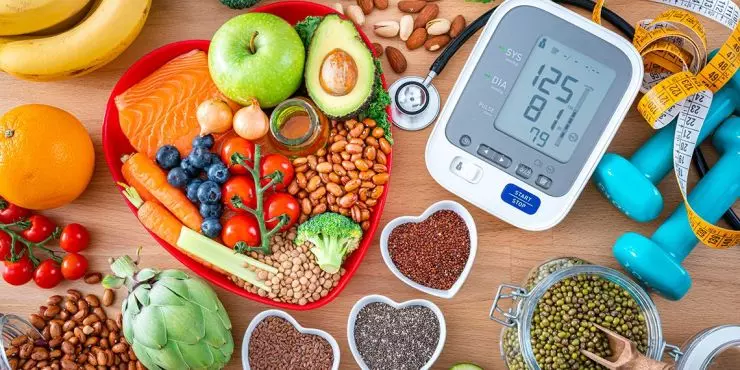
High blood pressure, also known as hypertension, is a common medical condition that affects millions of people worldwide. It’s often called the “silent killer” because it usually has no symptoms but can lead to severe health complications, including heart disease, stroke, and kidney failure. While hypertension is a serious condition, it is manageable with lifestyle changes and medical care.
What Is Blood Pressure?
To understand high blood pressure, it’s important first to know what blood pressure is. Blood pressure refers to the force of blood pushing against the walls of your arteries as your heart pumps it around your body. When you have your blood pressure checked, it is recorded as two numbers:
- Systolic pressure: The top number measures the pressure in your arteries when your heart beats.
- Diastolic pressure: The bottom number measures the pressure in your arteries when your heart is resting between beats.
A normal blood pressure reading is typically around 120/80 mmHg, but lower can also be very normal. Hypertension is diagnosed when your blood pressure consistently reads at 130/80 mmHg or higher.
Understanding High Blood Pressure and What Causes it?
High blood measure is defined as being above the normal range of blood pressure. Here is how blood pressure readings are classified:
Normal:
Systolic: less than 120 mm Hg
Diastolic: less than 80 mm Hg
Elevated:
Systolic: 120–129 mm Hg
Diastolic: less than 80 mm Hg
High Blood Pressure (Hypertension) Stage 1:
Systolic: 130–139 mm Hg
Diastolic: 80–89 mm Hg
High Blood Pressure (Hypertension) Stage 2:
Systolic: 140 mm Hg or higher
Diastolic: 90 mm Hg or higher
Hypertensive Crisis (emergency care needed):
Systolic: Higher than 180 mm Hg
Diastolic: Higher than 120 mm Hg
As stated above, here are two main types of hypertension which are defined as:
- Primary (or essential) Hypertension: This is the most common type of high blood pressure and develops gradually over many years. While it’s difficult to pinpoint an exact cause, it is often related to genetics, aging, and lifestyle factors such as poor diet, lack of exercise, and obesity.
- Secondary Hypertension: This type is less common but occurs as a result of another underlying condition. These can include kidney disease, hormonal disorders, certain medications (like birth control pills or decongestants), or excessive alcohol use. Once the underlying condition is treated, secondary hypertension may be resolved.
Risk Factors for High Blood Pressure
There are several risk factors that can increase your chances of developing hypertension. Some may you control, while others are not controllable.
Controllable Risk Factors:
Poor Diet: Consuming too much salt, processed or fast foods, and unhealthy fats can lead to hypertension.
Lack of Physical Activity: Sedentary lifestyles increase the risk of high blood pressure.
Excessive Alcohol Intake: Drinking more than the recommended amounts of alcohol can raise blood pressure.
Smoking: Tobacco use damages the arteries, leading to higher blood pressure.
Obesity: Being overweight forces your heart to work harder, raising blood pressure.
Chronic Stress: Stress can lead to temporary spikes in blood pressure, and long-term stress can contribute to its development.
Non-Controllable Risk Factors:
Age: Blood pressure naturally increases with age, as blood vessels lose their flexibility.
Family History: Hypertension tends to run in families, making genetics a key factor.
Gender: Men are more likely to develop high blood pressure before age 55, while women are at greater risk after menopause.
Race: African Americans tend to develop hypertension more often than individuals of other races, and they may experience more severe complications.
Symptoms of High Blood Pressure
One of the reasons hypertension is called a "silent killer" is that it rarely causes symptoms until it has already caused damage to the body. Most people with high blood pressure don’t know they have it until it's identified during a routine checkup.
- In cases where symptoms do appear, they may include:
- Headaches
- Shortness of breath
- Dizziness
- Nosebleeds
- Chest pain
- Blurred vision
If you experience any of these symptoms, especially if they are sudden or severe, it's essential to seek medical attention immediately.
The Dangers of Uncontrolled High Blood Pressure
If left untreated, high blood pressure can lead to serious health complications, including:
Heart Attack and Stroke: High blood pressure can damage arteries, causing them to harden and narrow, which can lead to heart attacks and strokes.
Heart Failure: The increased workload from high blood pressure can cause the heart to enlarge and weaken over time, leading to heart failure.
Kidney Disease: The kidneys filter waste from the blood. High blood pressure can damage the blood vessels in the kidneys, reducing their ability to function properly.
Vision Loss: Hypertension can cause damage to the blood vessels in the eyes, leading to vision problems or even blindness.
Aneurysm: Over time, the constant pressure on artery walls can cause them to bulge, forming an aneurysm, which can rupture and become life-threatening.

How to Manage and Prevent High Blood Pressure
The good news is that hypertension is manageable and for most people, a combination of lifestyle changes and medication can help bring blood pressure under control.
Lifestyle Changes
Making healthy changes to your daily routine is one of the most effective ways to lower blood pressure and prevent complications.
- Eat a Heart-Healthy Diet: The DASH diet (Dietary Approaches to Stop Hypertension) is specifically designed to reduce blood pressure. It emphasizes fruits, vegetables, whole grains, lean proteins, and low-fat dairy while limiting sodium, red meats, and sweets. The Mediterranean diet is similar and also a wonderful diet to help lower blood pressure.
- Exercise Regularly: Aim for at least 30 minutes of moderate physical activity (like brisk walking or cycling) most days of the week. Exercise helps strengthen the heart, making it more efficient at pumping blood, which reduces the force on the arteries.
- Maintain a Healthy Weight: Losing even a small amount of weight if you're overweight can significantly lower blood pressure.
- Limit Alcohol: Drink alcohol in moderation—up to one drink per day for women and two drinks per day for men.
- Quit Smoking: Smoking contributes to the narrowing of the arteries, which can lead to high blood pressure. Quitting smoking will improve your overall cardiovascular health.
- Reduce Stress: Chronic stress can contribute to hypertension. Techniques like meditation or mindfulness, deep breathing, and yoga can help reduce stress levels.
Medication
If lifestyle changes aren’t enough to lower your blood pressure, your doctor may prescribe medication. There are several types of blood pressure medications, including:
- Diuretics: Help reduce excess sodium and water from the body.
- ACE Inhibitors or ARBs: Relax blood vessels by preventing the formation of a hormone that narrows them.
- Calcium Channel Blockers: Relax blood vessels and reduce the heart’s workload.
- Beta Blockers: Reduce the heart rate and the force of the heartbeat.
Your doctor will work with you to find the most effective treatment plan based on your individual health needs.
Monitoring Blood Pressure at Home
Regular monitoring of your blood pressure is an essential part of managing hypertension. Many people find it helpful to use an at-home blood pressure monitor to track their levels between doctor's visits. Keeping a log of your readings can help you and your doctor assess the effectiveness of your treatment plan.
Continual Management
Managing high blood pressure is a crucial step in protecting your overall health and well-being. While hypertension may be a silent condition, the damage it can cause is anything but. The good news is that by making informed lifestyle changes, staying consistent with treatment plans, and regularly monitoring your blood pressure, you can significantly reduce the risks associated with this condition. Remember, every small change counts, and managing high blood pressure is a lifelong commitment to better health. If you're concerned about your blood pressure or have questions about your treatment options, be sure to consult your healthcare provider. Taking action today can lead to a healthier future.